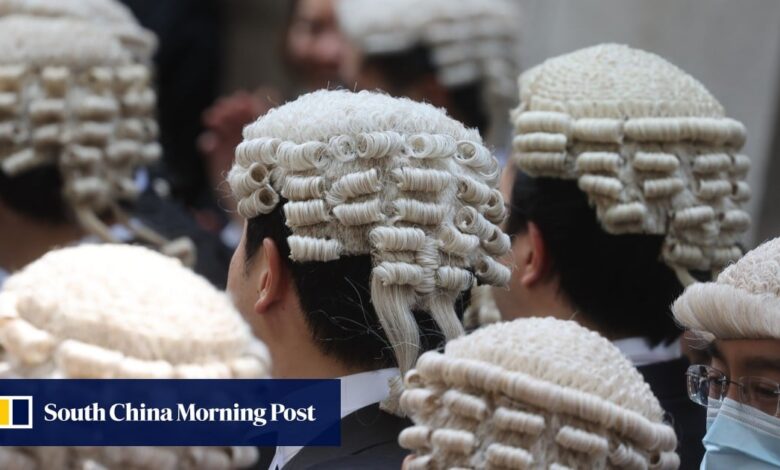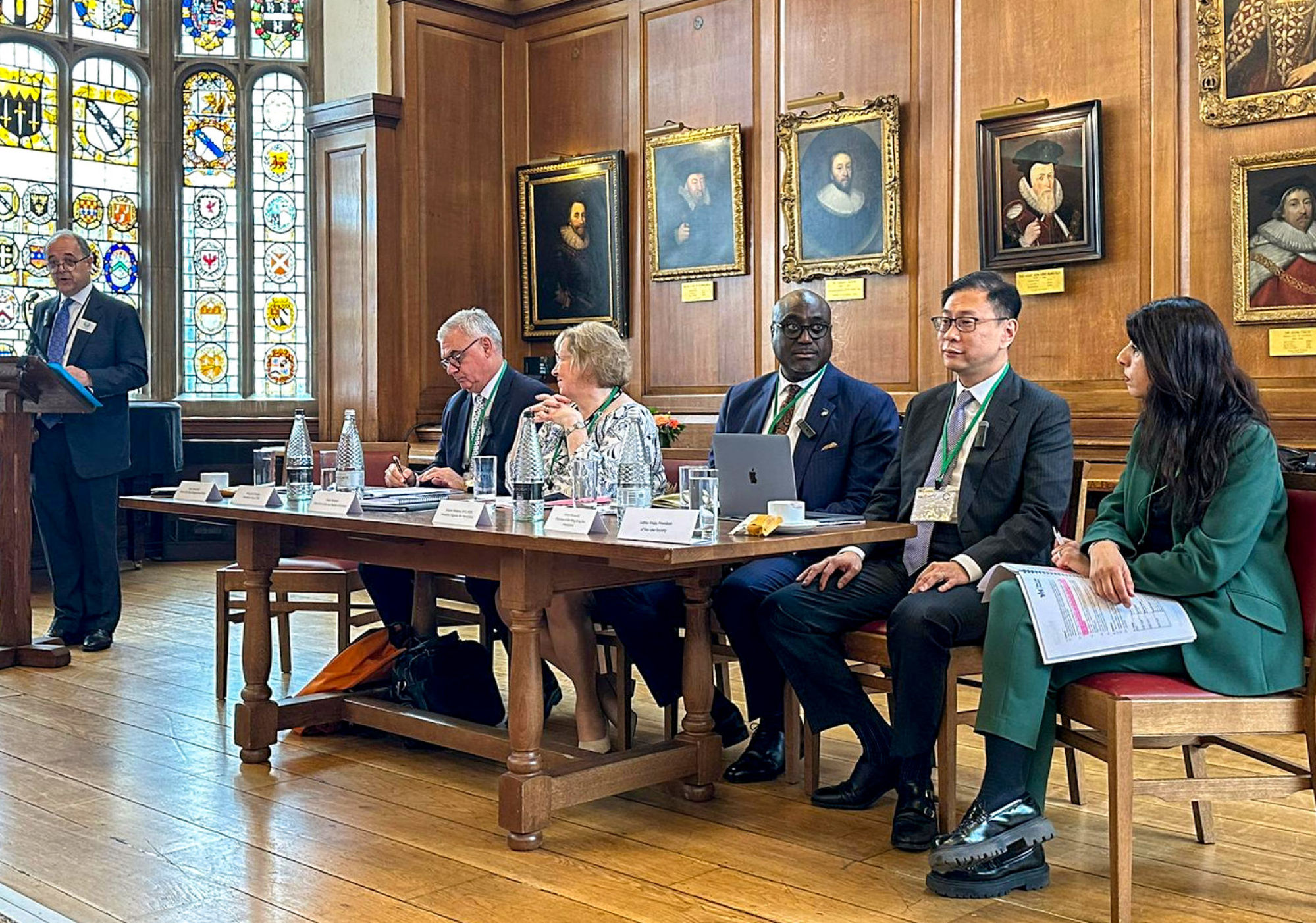Hong Kong’s judicial system has autonomy thanks to ‘strong, independent’ legal profession, Bar Association head says at opening of UK legal year

[ad_1]
Hong Kong’s judicial system has autonomy because of a “strong and independent” legal profession, the head of a major lawyers’ body in the city has said at a key forum in the UK as the only representative from Asia.
Bar Association chairman Victor Dawes also told the Post that the city’s presence at the annual ceremony for the second year in a row was vital to putting Hong Kong on the international legal map.
Dawes was in London on Sunday to mark the start of the legal year in England and Wales. He was the only representative from Asia to speak at a discussion held during the service, and will attend the opening of the legal year on Monday.

“A strong bar is sine qua non for strong and independent judiciary,” he told the attendees, stressing that the profession in the city was regulated in accordance with the Legal Practitioners Ordinance, which grants the Bar Association and the Law Society – two major sector bodies in the city – the power to discipline barristers and lawyers.
He also said the licensing and training of such professionals were not influenced by external factors. “We are fortunate that there is strong support from the judiciary in this regard.”
Dawes added that the strong and independent legal profession had enabled Hong Kong’s judicial system to operate independently.
Hong Kong slams UK over claims city’s legal system at ‘critical juncture’
Hong Kong slams UK over claims city’s legal system at ‘critical juncture’
This is the second year Hong Kong has been invited to the UK’s legal year opening since the Covid-19 pandemic hit three years ago. Bar Association vice-chairman Jose Antonio Maurellet also attended the event.
According to a statement issued by the association, Dawes and Maurellet also sought to establish connections and exchange ideas with counterparts from other common law jurisdictions around the world, introducing to them the unique advantages of Hong Kong’s judicial environment.
“These exchanges and discussions are important to put Hong Kong on the international legal map and we are grateful that we are invited to speak,” Dawes told the Post when asked if the invitation had shown the city was still welcome despite political controversies surrounding its legal system.
At last year’s service, judges and lawyers in Britain expressed concerns about the implications of Hong Kong’s national security law, posing tough questions such as the higher standard defendants in the city faced to post bail in national security cases.
They also raised issues with the power of Hong Kong’s chief executive to hand-pick a pool of judges for national security cases and the lack of any jury trials in such proceedings.
Hong Kong top court ‘creates uncertainties’ with security law sentencing ruling
Hong Kong top court ‘creates uncertainties’ with security law sentencing ruling
The Beijing-imposed national security law, enacted in Hong Kong in June 2020, has been a major point of contention in UK-Hong Kong relations.
The most recent tensions centred on Hong Kong police announcing in July a HK$1 million (US$127,730) bounty for information leading to each arrest of eight activists based overseas and suspected of violating the security law.
British foreign office minister Anne-Marie Trevelyan said such acts would only further damage the city’s international reputation and standing and the British government would not tolerate attempts by the central or Hong Kong authorities to intimidate or silence anyone in the country.
Hong Kong ‘should become legal training centre’ to support arbitration hub plans
Hong Kong ‘should become legal training centre’ to support arbitration hub plans
Lord Robert Reed and the vice-president of the British Supreme Court, Lord Patrick Hodge, also resigned last year as overseas judges who heard cases in Hong Kong’s Court of Final Appeal, noting they agreed with the British government’s concerns over the security law.
They were among 12 overseas jurists from other common law jurisdictions serving as non-permanent judges in the top court, an arrangement that has stood as a strong endorsement of the city’s rule of law.
But former chief executive Carrie Lam Cheng Yuet-ngor accused Britain of putting politics before the law in response to the resignations, adding foreign judges were only asked to uphold the Basic Law, bear allegiance to Hong Kong and serve its people, not “to support the executive branch, or endorse its policies and measures”.
[ad_2]
Source link





